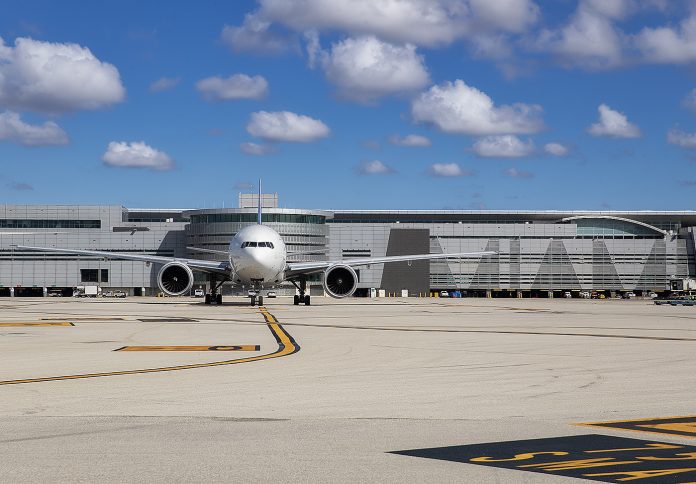|
Getting your Trinity Audio player ready...
|

Miami International Airport (MIA), a bustling hub for global travelers and cargo, is in a staffing crisis that demands immediate attention. On April 20, 2024, the scene at MIA’s passport control was a snapshot of chaos: travelers languished in six-hour queues — the unfortunate byproduct of federal staffing shortages and consequent checkpoint closures. This isn’t an anomaly; it’s the latest symptom of a chronic condition undermining our airport’s efficiency.
Passengers’ patience has been tested too often, and the costs are more than time lost. The consequences ripple out in missed connections, forfeited vacations, and absent seats at family tables—not to mention the bruise to our community’s economy and the tarnish on our national reputation. When tourists choose destinations, time wasted in lines weighs heavily in their decisions. MIA’s ranking as one of the least efficient airports for international travel is not a badge we proudly wear.
Data from early this year underscores a stark reality: MIA experiences some of the longest peak wait times among U.S. airports. “Upgraded Points” places us second from the bottom for international travel during the 2022 holiday season. This is unacceptable for an airport that is the second busiest for international travelers in the nation. Compare our average maximum wait times of nearly 80 minutes to Chicago’s O’Hare or Dallas/Fort Worth — it’s evident that the status quo at MIA is untenable.
We’re not just facing a logistical hiccup; we are in the midst of a full-blown crisis that impairs our city’s first and last impression. MIA should be a gateway, not a bottleneck. It’s time to translate our frustration into immediate action. The Biden administration and Secretary Mayorkas must prioritize resolving this issue. Waiting on long-term infrastructure plans is a luxury we cannot afford when immediate action can alleviate some of the strain.
A 20% to 30% increase in Customs and Border Protection (CBP) and Transportation Security Administration (TSA) staff at MIA is not just a suggestion; it’s a necessity to handle the surge in passenger and cargo volumes. And let’s be clear: this is likely a conservative estimate given the current delays. To sidestep this call to action is to ignore our community’s needs and our region’s economic welfare.
What MIA is experiencing is symptomatic of a broader disregard for efficient travel and trade. The Biden Administration’s oversight at MIA reflects a mismanagement that has eroded our airport’s efficiency and competitive edge. The administration’s actions — or lack thereof — resonate through our economy, as connectivity is the lifeblood of trade and tourism.
The time for platitudes and patience has passed. Our community deserves more than just understanding — it demands results. I stand ready to work alongside our congressional delegation to forge a path forward. Together, we must address the CBP staffing shortages and adapt proactively to our increasing traffic volumes. Our community, economy, and international reputation hinge on our ability to act decisively now.
To President Biden and Secretary Mayorkas, consider this not just a plea but a mandate from the heart of Miami-Dade County: Rectify these staffing woes and restore MIA to the world-class status it not only held once but truly deserves.






